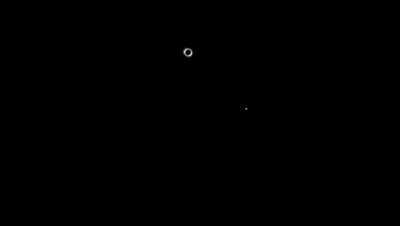Bill Murray's Blog, page 115
April 5, 2015
Rural East Iceland Photos
A visit to east Iceland in March 2015. Making landfall, top,��via the MS Norrona, second photo.
Arriving at the tiny port city of Seydisfjordur, with its little blue church.
Here’s our ride for the day, via JeepTours.is.
Icelandic horse on the road between Egilsstadir, the main town, and Snaefell, the tallest mountain.
A herd of around forty wild reindeer.
And our destination – a private geo-thermally heated pool with a mountain view. The air temperature about -8��C (17��F), and in the pool, 48-53��C (118-127��F).
These are just quick snapshots. The final, full-sized versions of these and many more photos from our trip to Northern Ireland, Oslo,��Norway and the island of Svalbard, Hamburg, Germany, the Faroe Islands and Iceland will begin to appear over the coming weeks on EarthPhotos.com.

March 30, 2015
A Few Faroes Photos
Sorry to leave the picture perfect Faroe Islands at midday today. We’ll sail on the MS Norr��na for��Sey��isfj��r��ur, Iceland. For now, here are a few photos from around the Faroe Islands.

March 27, 2015
First Faroes Photo
Excited to be in the Faroe Islands. We headed straight from the airport to get this photo of the village of Gasadalur. Now we’re in the capital, Torshavn, where it is alternating sun and sleet.
Looking forward to a couple of days of taking pictures here.

March 25, 2015
One Last Thing from Svalbard
March 24, 2015
End of an Eclipse
In Norse mythology a chariot carried the sun across the sky and two wolves chased it (or more likely the horses pulling it). When they��caught��it, an eclipse occurred. There are expressions in old French and German, something like ���God protect the moon from wolves.���
To Transylvanians eclipses were humans��� fault. Our bad behavior��caused the sun to shudder and turn away in disgust, covering herself with darkness. Evil��fogs gathered and ghosts swarmed the earth. Animals acted strangely and poisonous dew fell from the sky. Foreshadowing Chernobyl, after an eclipse, humans and their livestock wouldn���t consume water or produce.
This belief persisted into the 19th century. The poisonous dew could��bring plague. Humans huddled indoors. If they had to go out they would cover their mouths and noses. They sometimes��destroyed clothing caught drying outdoors.
Native Alaskan peoples, too, believed eclipses sent something vile descending to earth. This vile thing��could cause sickness if it settled on cooking tools so at the onset of an eclipse women rushed to hide them or turn them over.
Since northern people were accustomed to the sun disappearing for long stretches during the winter, it���s hard to say how alarmed the Norse and Alaskans became at the loss of the sun, but elsewhere people clanged and pounded on pots and pans, screamed, shouted and cried out to scare away whatever evil spirit had descended. The Chippewa shot fiery arrows into the sky hoping to rekindle the sun.
Eventually they were always successful.
And Friday too, after��the sheer escalation of anticipation, filled with anxiety too – would we get clear skies after coming all this way – and then the fusillade of emotion during the event, the diamond ring popped back onto the solar disc and the thing was over.
���������������
You remain quiet for a time, failing to quite absorb what you���ve just seen. But it’s more than just having seen the event, for you have also perceived, registered somewhere deep under the skin another, alien, raw thing, how the comforting life-giving sun was just five minutes ago an orange ring of flame surrounded by darkness, displaying another personality entirely, and not the benign one you prefer.
The daytime sun gives warmth. The eclipsed sun gives nothing. It is cold. More precisely it is chilling, an alien body performing raw, clinical, huge-scale mathematical astronomics, and once that has been��revealed you are frightened to have seen that it is so.
And then you pack up and go, long before the moon has cleared the sun.
I���ve always felt the clearing after a storm, a real tempest of a storm, is melancholy. It���s a settling of accounts in the atmosphere that returns sunshine, the sort of thing better sorted out by the weather gods after dark than during the day.
It���s like that after an eclipse,��too. It takes some time for the earth to settle back down from all that rambunctiousness.

March 23, 2015
Travel Day: Photos from Svalbard
Today is��a travel day, heading back down to Oslo for a couple of days before moving on later in the week to the Faroe Islands and then sailing to Iceland. While we’re traveling I’ll leave you with these impressions of Svalbard.
Here is the capital, Longyearbyen, with the Advent Fjord beyond.
This is the modest crowd gathering on the Advent plain east of town for Friday’s eclipse. The crowd grew, but not by much.
The Advent Fjord.
A snowmobiling stop.
They were putting this balloon through its paces prior to filming the eclipse.
And four more photos taken while snowmobiling across Svalbard. Note the avalanche in the second photo.
We visited the Russian mining settlement of Barentsburg. I’ll have some photos from there soon.

March 22, 2015
Celestial Diamond Ring
It’s cold and snowy with a stiff wind in Longyearbyen, Svalbard today, so it’s a good day to be indoors and in front of Photoshop, albeit on a tiny 13-inch MacBook screen.
Here we have another iteration of the ‘diamond ring’ from Friday’s total solar eclipse. The more technical term is ‘third contact.’ First contact is when the moon first touches the sun, second contact is when totality begins, third contact is when the moon begins to move from in front of the sun and fourth contact is when the moon finally leaves the sun’s disc entirely.
The time between first and fourth contacts on the Adventdalen plain at Svalbard Friday was two hours and about half a minute, but all the action took place in the two minutes twenty seven seconds between 11:10:42 and 11:13:10, the time between second and third contacts. That’s called ‘totality.’
The moon moved across the sun from lower right to upper left as you watched, and this photo shows third contact, the moment the moon began to move away from��the sun’s disk to the upper left, resulting in the bulge of sunlight known as the diamond ring. Note also the solar prominence visible just above nine o’clock.
The next big event is the 9 March, 2016 total eclipse, mostly visible across Indonesia.

March 21, 2015
More Photos around Longyearbyen, Svalbard
Just a quick, walking around tour from this afternoon. I’m hopeful I can share a 360�� panorama I shot on this excursion, but that will have to wait until I get back to the big screen, at home. Here we have the glacier above town. We came thundering down that thing on snowmobiles day before yesterday. No broken bones, all big fun.
Here’s the church.
City center and it’s rules.
And the main town parking lot.

March 20, 2015
Eclipse Video, Svalbard
Here’s a short video beginning just before totality and running until shortly after, from the eclipse at Svalbard today. At the beginning, the sun appears to be out as usual while��obviously something is up because meanwhile it’s getting dark on the ground.
This is why as it was seen across other parts of Europe and Africa today, a partial eclipse just won’t do.��Annie Dillard wrote that the difference between a partial eclipse and a total one is the difference between kissing a man and marrying him.
That’s it. The two just can’t be compared.
Totality seems really long on this little video screen, but that 2:27��went by in an instant out there on the tundra.


Photos around Longyearbyen, Svalbard
Here’s what it looks like around here. Svalbard is run by Norwegians subject to a treaty after WWI. It’s mostly smiling, agreeable northern folks, and even the invading eclipse hordes aren’t so many, and we don’t constitute a scrum.










































